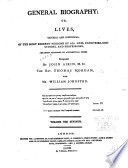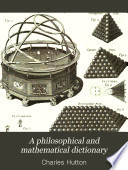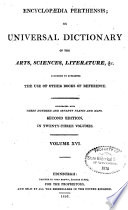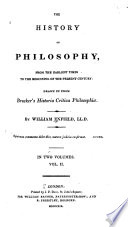 | Isaac Newton - 1729 - 444 pages
...much longer time. LAW II. The alteration of motion is ever proportional to the motive force imprefsd-, and is made in the direction of the right line in which that force is imprefs'd. If any force generates a motion, a double force will generate double the motion, a triple... | |
 | William Enfield, Johann Jakob Brucker - 1791 - 650 pages
...imprefied upon it, to change its ftate. 2. The change of motion is proportional to the force imprefled, and is made in the direction of the right line in which that force is imprefled. 3. To every adtion an equal reaction is always oppofed; or the mutual actions of two bodies... | |
 | 1792 - 574 pages
...impreffed upon it, to change its ftate. a. The change of motion is proportional to the force impreffed, and is made in the direction of the right line in which that force is impreffed. 3. To every aftion an equal reaction is always oppofed ; or the mutual aftions of two bodies... | |
 | Tiberius Cavallo - 1803 - 546 pages
...between AD and AB; for fince, according to the fecond law of motion, the change of motion is always made in the direction of the right line in which that force is imprefled, therefore the motion of the body along the line AD is altered from the direction AD, to... | |
 | John Aikin - 1808 - 730 pages
...by some force impressed upon it, to change its state, 2. The change of motion is proportional to the force impressed, and is made in the direction of the right line in which that force is NEW NEW impressed. 3. To every action an equal reaction is always opposc-d ; or, the mutual actions... | |
 | John Mason Good - 1813 - 830 pages
...uniform motion in a riglit line, unless it is compelled to change that state by forces impressed upon it. 2. The alteration of motion is ever proportional to...force impressed ; and is made in the direction of tlig right line in which that force is impressed. 3* To every action there ahvays is opposed an equal... | |
 | John Mason Good - 1819 - 788 pages
...by forces impressed upon it. 2. The alteration of motion is ever proportional to the motive fotc;- impressed ; and is made in the direction of the right line in which that force is impressed. 3. To every action there always is opposed an equal re-action : or the mutual action of two bodies... | |
 | Charles Hutton - 1815 - 686 pages
...motion, or change of motion, is always proportional to the moving force by which it is produced, und in the direction of the right line in which that force is impressed. If a given force produce a certain motion, a double force will produce double the motion, a triple... | |
 | 1816 - 778 pages
...volume of the Edinburgh Phyfical and. Literary EJJayt; but" the hypothecs never gained any ground. I. THE ALTERATION OF MOTION IS EVER PROPORTIONAL TO THE...IMPRESSED. — Thus, if any force generates a certain fluantity of motion, a double force will generate a double quantity, whether that force? be impreffed... | |
 | Johann Jakob Brucker - 1819 - 618 pages
...by some force impressed upon it to change its state. 2. The change of motion is proportional to the force impressed, and is made in the direction of the right line in which that force is impressed. 3. To every action an equal reaction is always opposed ; or the mutual actions of two bodies upon each... | |
| |